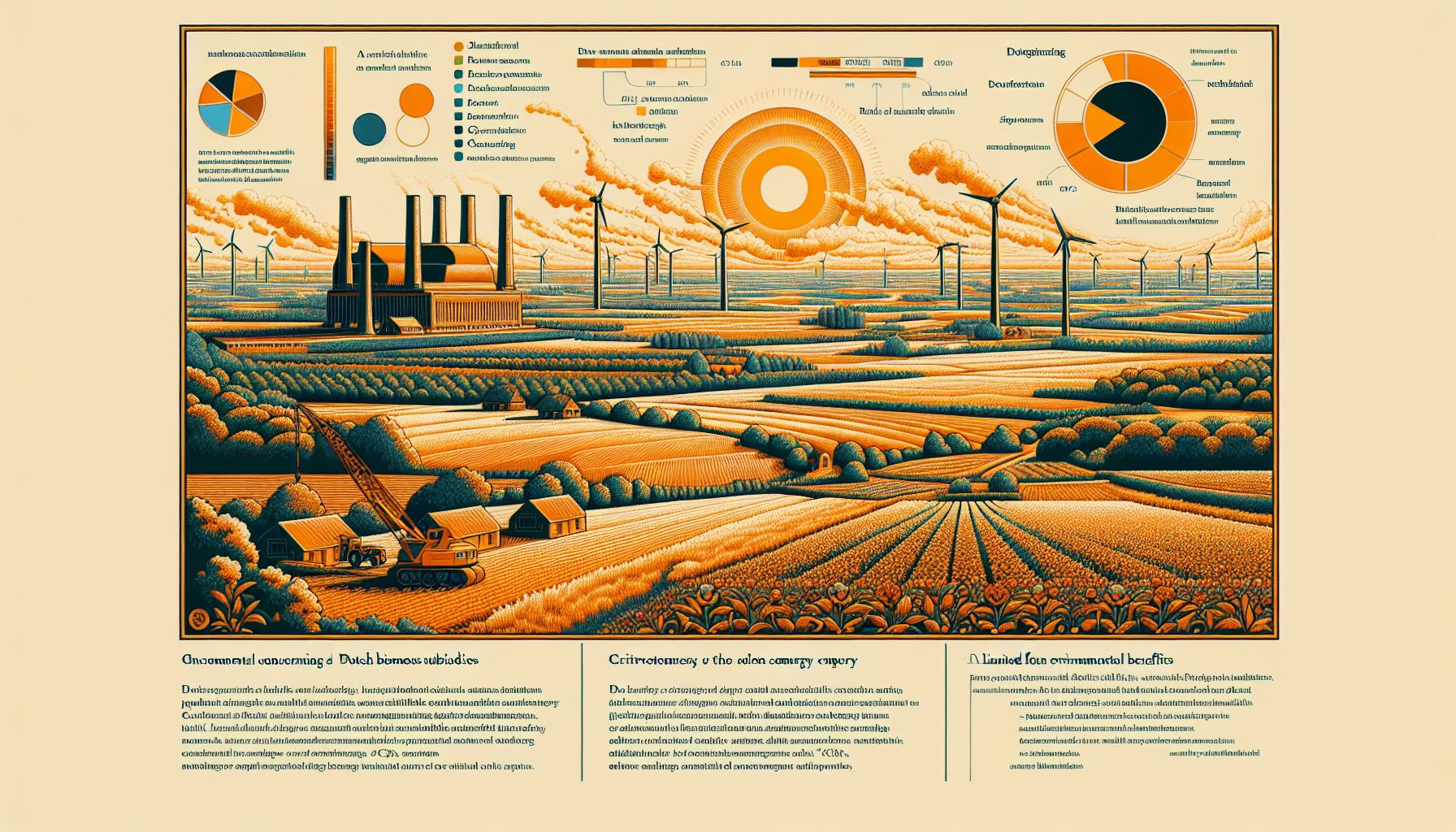Dutch Biomass Subsidies Raise Environmental Concerns

Netherlands, Thursday, 8 May 2025.
Dutch Minister Sophie Hermans faces criticism for increasing biomass subsidies benefitting RWE, despite concerns about deforestation, CO2 emissions, and limited environmental benefits.
Scale of Environmental Impact
In 2024, RWE’s biomass operations in the Netherlands resulted in significant environmental consequences. The company burned 2 million tons of wood in its Amercentrale and Eemshavencentrale power plants, generating 3.4 million tons of CO2 emissions [1]. The environmental impact extends beyond direct emissions, with an additional 600,000 tons of CO2 released during production and transportation processes [1]. The wood sourcing required clear-cutting of at least 10,000 hectares of forests in North America and Southeast Asia, with materials being transported 6,000-12,000 kilometers to reach Dutch facilities [1].
Financial Implications
The controversial subsidy scheme represents a substantial financial commitment from the Dutch government. RWE is set to receive 2.5 billion euros in SDE+ subsidies through 2027 [1]. The company has already begun diversifying its biomass sources, as evidenced by a recent agreement with Raizen Energia, a Brazilian joint venture between Shell and Cosan, for sugar cane-derived pellets testing at RWE’s 600MW Amer plant [2].
Policy Shift and Criticism
Minister Hermans’ decision to increase biomass subsidies marks a significant policy reversal. This move comes despite the government’s previous 2022 decision to halt subsidies for new biomassa projects following scientific and social criticism [4]. Critics, including climate scientist Maarten van Andel, have labeled the decision as ‘inconsistent’ and ‘incomprehensible,’ particularly given the mounting evidence of biomass’s negative environmental impact [4].
Broader Climate Strategy Concerns
The biomass controversy emerges amid broader concerns about RWE’s environmental impact. The company faces increasing scrutiny, including a landmark climate justice case in Germany regarding its contribution to global emissions [7]. This comes at a time when the Netherlands is struggling with its energy transition, as evidenced by grid operator Enexis’s challenges in managing sustainable energy integration [5].
Bronnen
- www.wyniasweek.nl
- www.argusmedia.com
- www.nvde.nl
- nieuwrechts.nl
- www.enexisgroep.nl
- www.gem.wiki
- energynews.pro

